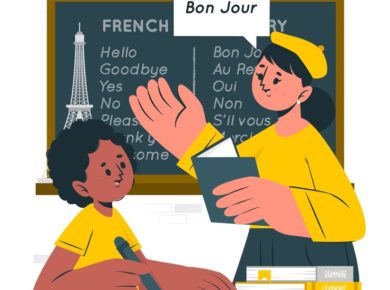Common courtesy, etiquette, and morals are required for everybody to get together in our society. These are the results of the kid’s raising and schooling. It is hence our job to teach basic manners to kids. Parents and teachers must collaborate in teaching children civility and empathy for others. The teaching of Common Courtesy, Proper Behavior, and Morality has been made legal anew. This simply implies that these areas are critical, and their application must extend beyond the pages of textbooks and schools. Politeness comes naturally to some youngsters while others battle. Some parents are better at teaching basic manners than others.
As a result, it is critical for instructors to properly implant values in children, mainly because the majority of them are now sent off to preschools at young ages. It is essential to use courteous language and to demonstrate the manners being taught. It is also critical to rectify faults swiftly without embarrassing the child, especially in front of others. Please bear in mind that the child shouldn’t be used as an example. It is crucial to use respectful words and tones while pointing out the error, and the emphasis should be on trying to do better in future occasions. Teachers must notice what children add to talks and treat them with decency and respect at all times.

Some basic manners to instill in the students are :
Use of Phrases of Courtesy
Encourage your students to say “Thank you” and “Please.” Teach them when and how to use sentences like this. Allow them to leave if they say “Thank you” after receiving anything from anyone. This will infuse in them the importance of polite courtesies in their lives.
Become a positive influence.
Serve as a role model for your students by exhibiting kindness and respect for everyone else throughout the day. This is the most effective and successful method of shaping positive behavior as children learn what they see.
Interrupting Someone Is a Bad Habit
Educate your students not to interrupt while elders are talking over something important. If they truly have an emergency, they should only begin speaking after saying, “excuse me, please.” This also applies to everyday life. If your student wants to talk or ask a question when the teacher is in between a lesson, they should raise their hand and say “excuse me, please” before beginning to speak.
Use activities to teach kids manners.
Act out a scene using puppets, dolls, or stuffed animals during which one character is courteous and polite to the other. To assist your youngster, remember the lesson, and make it entertaining and lively. Also, refrain from giving a lecture. When children receive positive feedback for desirable conduct rather than negative reactions when they misbehave, they react favorably.
Sneezing and coughing while covering their mouth
When your children enter school, you will see that despite their parents’ best efforts to keep them free of ailments such as coughs, colds, and fevers, children will become unwell very frequently. This is not due to neglect but because the child is in close proximity to other children who may be suffering from a cough or cold. Because these illnesses are contagious, they spread quickly. To preserve the students’ and other children’s health, they should always be taught to cover their mouths while sneezing or coughing so that bacteria and infections do not spread to others.
Nobody should be made fun of.
You should tell the students that they could meet anyone that is a tad different from them at school. Teach children not to make fun of someone who is a bit unusual in the way they behave, speak, anything really.
Avoid wasting resources.
Teach your students to appreciate everything. They should not throw anything out, even colored pencils and food. Allow them to know how fortunate they are to have all they need; only then can children comprehend the worth of everything.
Cleanliness should be observed.
Remind your students to thoroughly wash their hands before unpacking their lunch boxes. Make it a point to remind children to keep their school uniforms and shoes clean.
These are the basic good manners that your students should learn from an early age in order to have a brighter future. Teaching such etiquette can assist you in boosting your pupils’ confidence and guiding them along the journey to prosperity.
Suggested: A teacher’s guide to help students in self study
Explain but maintain explanation Age-Appropriate
Adapt your explanations to the age and developmental level of your students. You may also work on their patience; however, although they may be able to sit quietly for only a few minutes at a time, an older child might be expected to wait much longer. It might be beneficial to focus on one ability at a time before moving on to another. If you assign too much to your students at once, they may feel intimidated. It’s also a good idea to evaluate prior skills on a regular basis to ensure your student remembers how to use them and to teach more advanced manners they may be ready to learn.
The Final Word
As we’ve seen, teaching etiquette is more than just external conventions. While it might begin by copying adult behavior, it must progress beyond that. Teaching empathy and thankfulness can help a youngster understand their place in the world; they need to be pleasant in order to get by. Others must also be courteous to them. They may face natural repercussions if they are not sharing, caring, and generous. Maintaining these natural consequences as part of your teaching routines can assist in reinforcing the idea of why they are being taught their manners. Classplus assists teachers in providing the greatest possible results in their classrooms while also assisting them in growing professionally. You can create your own app with Classplus and grow your online brand. To know more, talk to our experts.




